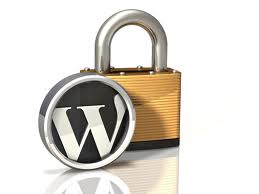Because WordPress has become such a popular method of blogging and reaching others online with their blog, there have been some issues with WordPress security. Instead of being concerned, however, it means users should beef up their WordPress security.
Taking efforts to increase WordPress security from hackers, phishing and other online threats is the best way to ensure your blog remains private and safe from outside attacks. Since WordPress was started, there have been unfortunate security risks that the company has worked hard to overcome. However, just like any online site or program, the security is not infallible, which means it is up to the user to protect themselves by enhancing their WordPress security. The WordPress programmers do their best to ensure great security and reliability with the WordPress software and support. However, when using outside tools and services to increase the user ability with a blog, there is a trade off between security and features. With so many outside widgets and plugins sponsored by other companies to be used on your WordPress blog, there is always the chance of letting in another outside source that could potentially hack or infiltrate your blog’s security. There are some ways around this however. The best ways in harden your WordPress security includes:
Limiting access points to your computer:
The best way to do this is to make sure you cover all of the areas of vulnerability on your computer by making sure you are free of spyware, malware, adware and other virus infections. Make sure you are running secure and stable versions of your applications.
Upgrade your WordPress version as it becomes available:
This is another way to protect the vulnerable aspects of your system, but this time with the WordPress blog program itself. Updates will more than likely also contain improvements and updates to security giving you even more protection against online threats and attacks. Also along with this same concept, if you notice any bugs with the WordPress security, be sure to inform WordPress about the situation as soon as possible so they can get programmers on the ball to fix the situation for the future.
Be up to date everywhere else, too:
There may also be vulnerabilities with your server, web browser and any scripting or programming language you might use on your computer. Be sure to cover these areas in case of a potential attack. Make sure you are up to date with the newest versions of all programs and that you are running secure versions of each with a trusted web host that also offers quality security.
Backup your database and files:
While this may not directly relate to security, just like with anything worth saving, it is worth saving and backing up your WordPress blog. In case your blog does get hacked, you will be glad you did.
Use a trusted network:
If you have secure firewalls established on your network at home or at your office, you know you have a secure network and it is safe to access your WordPress blog without too much risk of sending encrypted information like passwords over the secure network. However, be careful not to do this with an non-secure network like free WiFi at your favorite coffee shop or at a hotel. These are examples of non-secure networks and can be infiltrated to take over your password and other vital information.
Be careful with your passwords:
This may seem like an no brainer when it comes to WordPress security, however, millions of people get their various online accounts hacked every day. The best way this can be avoided is through good security habits. There are a few things to keep in mind when choosing a password:
- Do not use your own name for a password
- Do not use a dictionary word
- Do not use a 4-character string of numbers as your password
- The best password is made by using a combination of letters and numbers with alternating capitalization.
Change the administrator account login:
When installing WordPress and setting up your account, be sure to change the administrator name. If you don’t, this will make it easy for hackers to get into your account because half the battle is already won. Be sure to not make this mistake.
Monitor your logs, files, server, WordPress account and computer:
Overall, one of the best ways to stay safe with WordPress security is to be sure to carefully monitor your blog activity. Regularly check your logs to make sure you know if there is someone out there who is trying to guess their way into your login by guessing the password. Make sure you monitor these logs to ensure your safety. Also, watch your files and blog content for changes. This will help prevent severe damage or changes to your content and risk compromising other content or the information of others. Lastly, check your computer regularly for viruses and other forms of malware to make sure there are no risks attempting to penetrate your computer and WordPress security.
